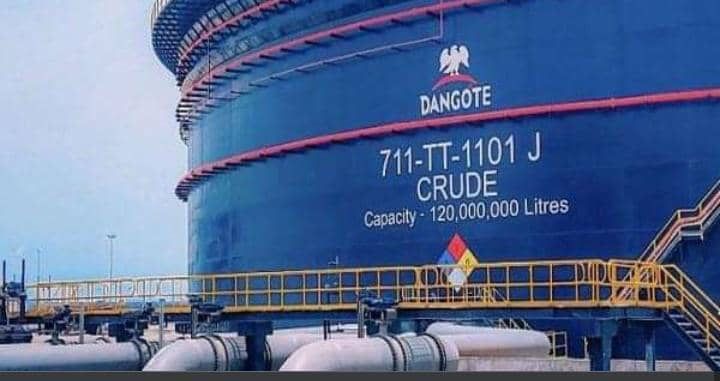
The Dangote Refinery in Lagos has refuted claims that it is selling petrol to the Nigerian National Petroleum Company Limited (NNPCL) at N898 per litre.
A spokesman for the refinery Anthony Chiejina described the statement attributed to NNPCL spokesperson Olufemi Soneye as “misleading and mischievous.”
Chiejina stated, “We have noted a statement from NNPCL claiming that we sell our Premium Motor Spirit (PMS) at N898 per litre. This claim is both misleading and mischievous, and seems aimed at undermining the significant progress made on September 15, 2024, towards solving energy shortages and insecurity that have plagued the Nigerian economy for decades.”
He urged the public to disregard the statement and wait for a formal announcement regarding pricing from the Technical Sub-Committee on Naira-based crude sales to local refineries, appointed by President Bola Ahmed Tinubu. The committee is expected to start its work on October 1, 2024.
Chiejina also clarified that the current stock of crude was purchased in dollars and that petrol was sold to NNPCL in dollars, which provided significant savings compared to their current import costs. This initiative aims to ensure the availability of petrol across all local government areas in Nigeria, including remote regions.
The NNPCL began loading its first batch of petrol from the Dangote Refinery on Sunday. Last December, the refinery, Africa’s largest industrial project, started operations with a capacity of 350,000 barrels per day and aims to reach its full capacity of 650,000 barrels per day by the end of the year. The refinery has also begun supplying diesel and aviation fuel, in addition to petrol.
Nigeria, facing significant energy challenges with all state-owned refineries out of operation, relies heavily on imported refined petroleum products.
The removal of fuel subsidies in May 2023 led to a surge in petrol prices from around ₦200 per litre to approximately ₦1000 per litre, exacerbating the difficulties for citizens reliant on petrol for vehicles and generators amid chronic electricity supply issues.





